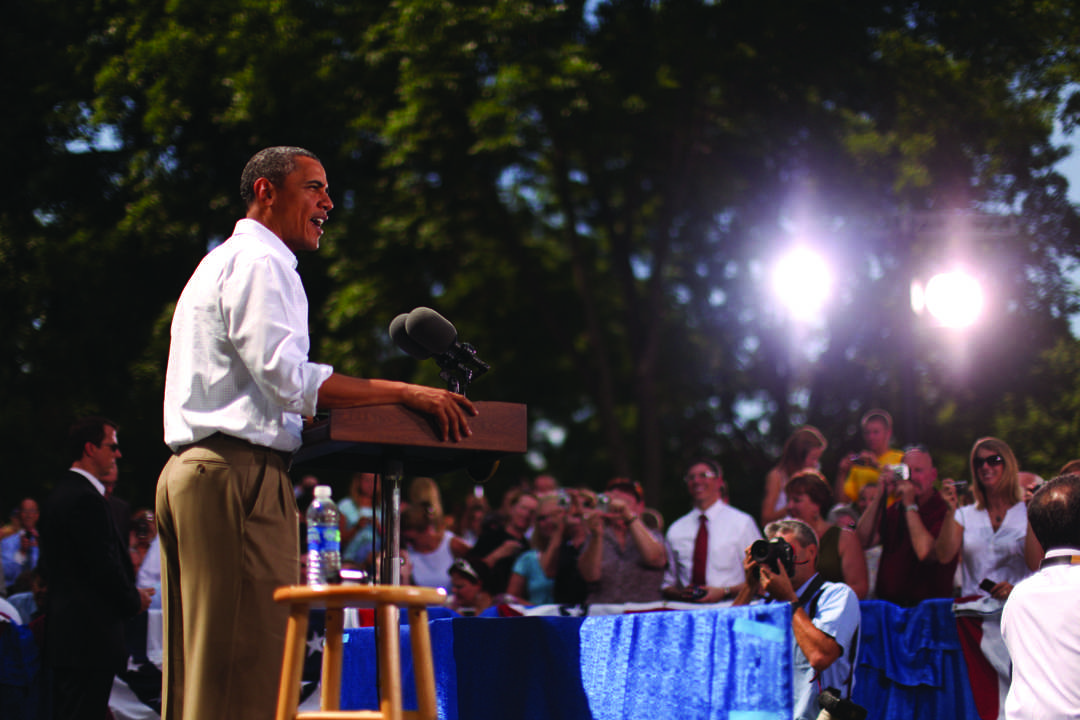A Congressional Circus: American Politics Turn Farcical
August 25, 2011

All summer long, headlines across television and computer screens exclaimed the urgency of the national debt crisis as our country came closer to possibly falling into default. As with all political issues, the Democrats and Republicans proposed different solutions to solve the issue.
Yet what began as a tempered debate with a possible compromise turned into a complete impasse as both sides became obsessed with humiliating the other party. Audiences of CNN, FOX and MSNBC tuned in nightly only to see the theatrics of the Ringling Bros. Circus, as opposed to the serious dealings of a functional Congress.
Finally, on Aug. 5 Standard & Poor’s (S&P), our nation’s credit rating provider, reacted by downgrading America’s top credit rating from “AAA” to “AA+.” It is a significant change that reflects the volatile national economy and the company’s pessimistic views on the competency of our government. In their justification of the downgrade, S&P states:
“The downgrade reflects our opinion that the fiscal consolidation plan that Congress and the Administration recently agreed to falls short of what, in our view, would be necessary to stabilize the government’s medium-term debt dynamics…[T]he effectiveness, stability and predictability of American policymaking and political institutions have weakened at a time of ongoing fiscal and economic challenges to a degree more than we envisioned when we assigned a negative outlook to the rating on April 18, 2011.”
The reason for taking such a drastic measure? S&P argues that current political divides are too strong to allow officials to compromise on a fiscal plan that will alleviate the nation’s debt.
Huzzah! The elephant in the room is no longer plastered against the wall, too timid to make a sound. Its call is loud and strong, commanding the attention of our politicians with a much needed reality check.
The downgrade from S&P was initiated by a long and harrowing game of tug of war for the spotlight. After the nation hit its debt limit of $14.29 trillion in May, Congress had to decide the best way to maintain the country’s economy and an operating government before their deadline of Aug. 2.
President Obama pushed for the Democrats’ demands to raise the debt ceiling to avoid default. He proposed cutting spending while increasing taxes to build revenue.
On the other hand, the Republicans insisted on going into default. Republican Speaker John Boehner tirelessly demanded to stop further stimulus measures and wanted to cut spending on entitlement programs such as Medicare and Social Security without increasing taxes.
The deadlock was surely frustrating. But at least watching the politicians’ shucking and jiving kept us entertained. Pundits across the channels started shouting matches at whatever chance they could get. And Boehner could not help but join in on the theatrics; to the dismay of citizens and fellow officials, he refused to sign a proposal drafted by the Democrats to fix the debt crisis just three days before the country automatically fell into default.
In the end, what was supposed to be compromise came to be a cop-out. Yes, the fiscal plan has increased the debt ceiling by 2.1 trillion, maintaining entitlement funds and increasing Pell Grants. But the public is now left with cuts in those same entitlement programs and discretionary spending in services such as the military, various agencies and subsidized loans for graduate students.
Most disappointing is that Obama failed to include tax revenues from wealthy Americans, his main solution to fighting the national debt. Fiscal analysts were quick to criticize the final product, disapproving the lack of critical entitlement reforms and skeptical that spending cuts alone would take us out of such a large debt. At the end of the exhausting and futile battle, people across America did not know whether to laugh or cry.
I watch the news at night to educate myself and to form my views for the 2012 elections. But I find myself becoming more apathetic toward our politicians’ misguided actions. Once again, the American people have had to pay because of the Republicans’ extreme actions to get the Democrats out of the White House and because the Democrats cannot stand their ground. It is clear that our officials have become too distracted by their partisan motives to seriously address the public’s needs.
While politicians are preoccupied with gaining a stake in the upcoming elections with photo ops and a sound byte on the 6:00 p.m. news, our children’s academic skills are falling behind their counterparts around the world due to an inadequate public education system. Our middle class is getting smaller and smaller. Parents are losing their savings, no longer able to ensure their children a better life. Students are leaving campus with useless degrees unable to find work. If current conditions are not startling enough, fiscal analysts are predicting a second recession.
The American public is losing patience and we need our government more than ever. I challenge our nation’s officials to step out of the spotlight, stop posing for the cameras and to face our nation’s problems head on.









